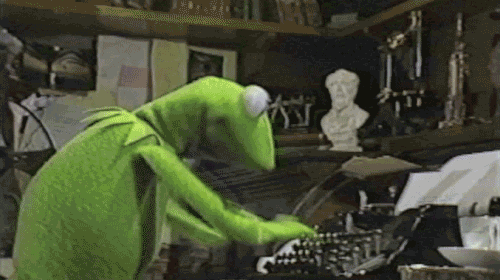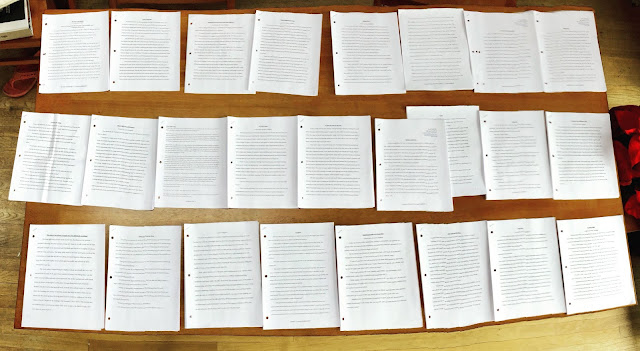My thesis will be finished. Not yet, not soon, but someday, and looking at the collection of stories I've put together in the semi-final stages makes me proud, and happy, and excited ... for what's next.
I found my way to
Goddard two years ago, hungry to change my approach to writing, eager to improve and professionalize my stories and the way I produced and shared them with the world. My take on me was that I was more storyteller than writer, and what I wanted to get from my time at Goddard was to slide further along the continuum towards being a writer, while not losing the storytelling.
Goddard's been nearly perfect for that, for me, in that it gave me what I wanted as well as what I needed. The magic of Goddard exists in two areas: intellectual freedom, focused on learner desires and outcomes; and a community of people to learn with who are brilliant and engaged.
I was able to define my goals, choose my path, and make my own way, comfortable knowing that my teachers and advisers would support me and help me with course-corrections as needed along the way. Living and working and learning with a vibrant and vital community of motivated thinkers and creators only served to pull me higher and faster, along narrow paths to summits I'd never visited before.
My process has been to read and write, supported and nurtured by my peers and faculty. With their guidance, I've read and annotated an eclectic mix of books (fiction, poetry, and books about writing by writers), many of them titles and authors I never would have encountered on my own. Before, during, and after reading these dozens of books, I wrote ... and wrote ... and wrote.
Since starting at Goddard, I've written between 80 and 100 short stories ... lots of them pretty horrible. Some of them, however, were informed by something I'd read, a discussion I'd had, or a seminar or workshop I'd attended during one of the residencies; these stories are generally the ones I circled back to again and again to tweak and polish and prune and graft.
Of those many stories, I sifted and sorted about two dozen that I felt were both representative of my work and growth while at Goddard, seemed to hang together as a collection, and also meant something to me on a personal level.
One of the joking/not-joking taglines at Goddard is to "
Trust the Process" ... the process of becoming a writer, or at least
my process of becoming a writer, involved reading a lot, writing a lot, talking with smart people who enjoy both reading and writing, and drinking lots of coffee.
Goddard has supported me, and my growth as a writer, in all facets of this process.
For me, that process included finding the time and energy to love editing and revising my work more, much more than I had previously done. As Storyteller-Jamie I loved the creation, making something from nothing; as soon as I was done with the initial creation I'd be ready to move on to the next thing, only grudgingly editing and revising my work as a necessary evil.
Post-Goddard, more-of-a-Writer-Jamie still loves the creation, but sees, and acknowledges, editing and revision as a part of the creative process ... that the creation isn't whole until it's as good as I can make it. That probably seems like a subtle difference to anyone still reading this interminable blog entry, but it's made a big difference to my writing, and to me.
Long story still long, I picked 27 stories and submitted them to my advisor and second reader at Goddard.
The feedback is still coming in, but I agree with what I've consumed and digested so far:
- a number of the stories don't work as well either on their own or with the collection as a whole, so I'm dropping five (my advisor lobbied for a couple more, but I know what the stories can be, and I'm trusting myself to get them there in time for my final submission)
- I need to work to polish and reorder the remaining 22 stories to present them in the best possible light ... only then will they, and the collection be done.
I can feel "what's next" floating out there, in front of me, stories waiting to be told ... but I'm not done writing these ones yet, so I'll wait, they'll keep.
{a detective novel, a fantasy novel, another collection of short stories, more Tyler stories, a cookbook, etc.}
Thanks,
Jamie
Westmoreland, NH
































